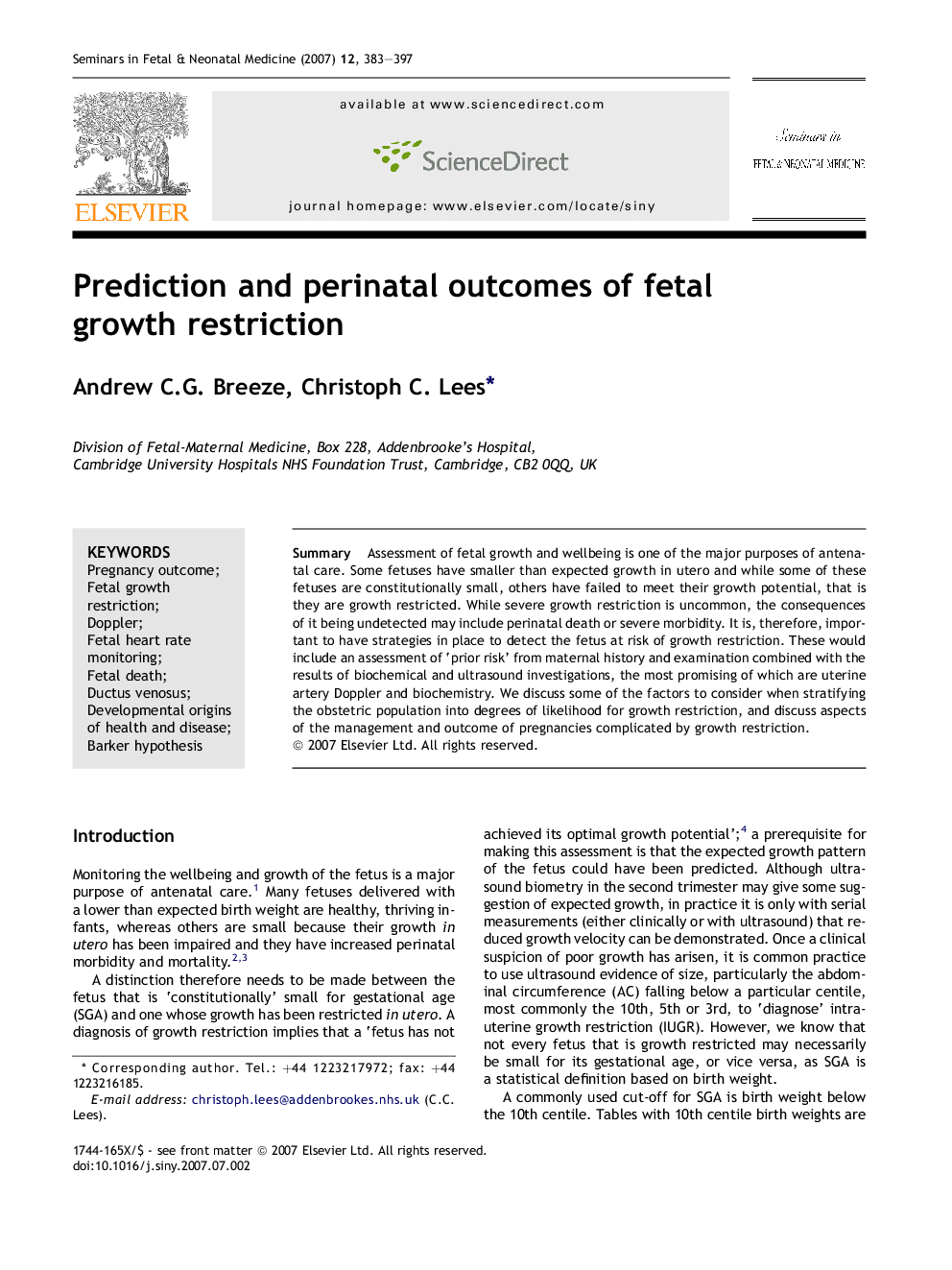| Article ID | Journal | Published Year | Pages | File Type |
|---|---|---|---|---|
| 3974758 | Seminars in Fetal and Neonatal Medicine | 2007 | 15 Pages |
SummaryAssessment of fetal growth and wellbeing is one of the major purposes of antenatal care. Some fetuses have smaller than expected growth in utero and while some of these fetuses are constitutionally small, others have failed to meet their growth potential, that is they are growth restricted. While severe growth restriction is uncommon, the consequences of it being undetected may include perinatal death or severe morbidity. It is, therefore, important to have strategies in place to detect the fetus at risk of growth restriction. These would include an assessment of ‘prior risk’ from maternal history and examination combined with the results of biochemical and ultrasound investigations, the most promising of which are uterine artery Doppler and biochemistry. We discuss some of the factors to consider when stratifying the obstetric population into degrees of likelihood for growth restriction, and discuss aspects of the management and outcome of pregnancies complicated by growth restriction.
